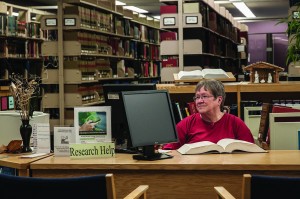After a two-year hiatus, Sherlock returned to television at the beginning of this year to the jubilant delight of thousands of fans around the world. For those unaware, Sherlock is a retelling of the classic stories by Sir Arthur Conan Doyle in a contemporary setting. It provided the stage on which Benedict Cumberbatch, playing the titular character, burst into international acclaim, and it has not done poorly for the reputation of Martin Freeman in the role of deuteragonist John Watson, either. Written by Stephen Moffat (of Doctor Who) and Mark Gatiss, the show has thus far displayed a great ability to adapt Doyle’s original stories to a modern setting.

The third season had a tall order to meet. The dazzling success of the first two ended in the heights of mystery, as fans everywhere were left wondering how Sherlock had survived his apparent death while deceiving even Watson. We all loved that ending, and looked forward to learning the explanation, as well as witnessing Sherlock’s return to his beloved London.
Any writers would have been challenged to deliver on fans’ expectations, and unfortunately, Moffat and Gatiss didn’t quite manage it. Compared to the prior two seasons, the third one has thus far been a relatively unremarkable example of television. Catering to the curiosity of the fans, Gatiss spent the majority of the first episode, The Empty Hearse, focusing on Watson’s reaction to Sherlock’s return. As one of those curious fans, I was absolutely delighted by the emotion and concurrent humour involved with said reaction, but given the brevity of the episode, it was surely a mismanagement of time. It would have been business-as-usual in a show which featured seasons of normal length, but Sherlock only has three episodes per season, and I felt as though this writing decision cost them. Because the episode focused so much on Sherlock’s return, the drama of the actual case—in which Sherlock is to prevent a terrorist bombing of parliament à la Guy Fawkes—is hurried and unfinished. We never learned enough about the antagonist to actual fear that he might succeed, and by the end of the episode he still felt like an empty threat. Consequently, the resolution rang hollow as well.
The second episode,The Sign of Three, was slightly reminiscent of The Reichenbach Fall (the 2nd series finale) in its coverage of multiple cases which Sherlock hadn’t been able to solve. While it only seemed right that the writers should deliver handsomely on the wedding of John Watson, this episode again felt unfulfilling. The majority of it was retrospective, delivered in the form of history’s most awkward wedding speech, and it felt quite taxing by the time Sherlock wound to a close. Despite the fact that they tied all of the cases together at the ending and Sherlock was able to prevent a death during the reception itself, the entire episode still seemed as though Moffat and Gatiss had drawn inspiration from Michael Scott of The Office. While entertaining, it seemed out of place in Sherlock. Overall, the second episode was very disappointing. Most of the episode meandered without a clear antagonist to anchor it, and when he did show up it was without much hubbub or recognition. He was less engaging than a monster from Scooby-Doo, and the episode suffered for it. In most shows, I would call this a “filler” episode, making it a real shame that they wasted both the Wedding of John Watson and Sherlock’s first Best-Man speech on it.
Between the meandering and unfocused script of the second episode, and a first episode which, with its spectacled man and ominous music at the end, might well have been written to fulfill a checklist of “How to Introduce a Scary Villain,” the season has been much less enjoyable than the preceding two, and has felt much less engaging. That is not to say that it is a selection of terrible episodes, because it really still is far superior to most other contemporary television shows. Rather, in the third season, Gatiss and Moffat failed to meet the high bar which they themselves raised impossibly high in their first two seasons. They put in a very good effort, though, and so I recommend that everyone who has not yet seen the season put the popcorn on and watch it ASAP—so long as you don’t hold it to the same standards as you might the first two seasons.

